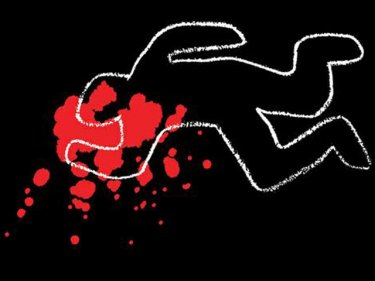WHILE THE international community is calling on Indonesia to the spare lives of convicted drug traffickers from being executed, petty criminals are being lynched to death by mobs taking the law into their own hands in the country.
Recently, incidents of motorcycle robberies on the streets of greater Jakarta have increased - along with the deadly mob violence associated with it.
Last month in Pondok Aren, South Tangerang - on the outskirts of Jakarta - a group of people caught a robber in action. They burned him to death.
Three of the victim's accomplices managed to run away. Police were absent when the killing, which happened past midnight, took place.
In another incident in Pasar Minggu, Jakarta, a robber was caught trying to snatch a motorcyclist's bag. The robber was beaten to death.
The mob didn't set him on fire, but someone from the crowd did suggest it. Like the South Tangerang incident, three of the robbers ran away and police were not present.
Death toll of mob justice
MOB JUSTICE is one of the most prominent forms of violence in Indonesia. Sana Jaffrey wrote that mob violence is a daily phenomena that happens all over Indonesia.
According to data from the National Violence Monitoring System that Jaffrey helped set up, 20 percent of victims of violence that were killed, badly hurt or permanently crippled are victims of mob justice.
In 2014, there were nearly 4300 incidences of mob justice. Three hundred people were killed.
This kind of violence happens more in urban areas, despite cities having more law enforcers. Around 80 percent of the crimes that trigger mob justice can be solved in the proper legal system.
Petty theft is one of the main triggers for lynching. Incidences of mob violence reflect the weakness of Indonesia's legal system in solving petty crimes.
Police failure in protecting citizens
WHENEVER there is mob justice, there are people who feel unsafe. Motorcycle robbery and mugging in the streets are widespread problems in Indonesia, especially in big cities.
However, the government provides very little protection to ensure its citizens feel protected from petty crimes or communal conflicts.
Indonesian police only provide patchy and partial protection for citizens. If the public and the media paid a lot of attention to motorcycle robberies and mugging, the police would act.
But police involvement does not ensure criminal suspects have their day in court - police have reportedly said they had shot dead seven motorcycle robbers in Jakarta and surrounding areas.
Why people lynch
LYNCHING is a social punishment that is much harsher than any crime being committed. Victims of lynching, like those mentioned above, are usually murdered by beating or burning.
The people who caught the robbers could have handed them over to police officers without hurting them. Or, if they had hit the suspects, they could still have handed them over alive.
So why do people choose the most extreme action when there are more lenient alternatives?
There are some common factors. First, when police are not present, there is no deterrence in the forming of a mob.
Under this situation, if one of the crowd members ordered an extreme action, the rest can be moved to kill without much thought.
Second, there is an overwhelming public acceptance of mob justice. The mother whose son was burnt to death said she was ''ikhlas'' (or unconditionally accepting) of her son's fate.
The wife of the Pasar Minggu mugger expressed the same. It is clear that many Indonesians feel mob justice is legitimate even towards the people they care for.
Lynching of robbers and muggers can be reduced if there is a deterrence factor. The public also needs to be educated to reduce any acceptance towards the lynching of criminal suspects.
This article was originally published on The Conversation. The author is Lecturer in Peace and Conflict Resolution at Gadjah Mada University.
Recently, incidents of motorcycle robberies on the streets of greater Jakarta have increased - along with the deadly mob violence associated with it.
Last month in Pondok Aren, South Tangerang - on the outskirts of Jakarta - a group of people caught a robber in action. They burned him to death.
Three of the victim's accomplices managed to run away. Police were absent when the killing, which happened past midnight, took place.
In another incident in Pasar Minggu, Jakarta, a robber was caught trying to snatch a motorcyclist's bag. The robber was beaten to death.
The mob didn't set him on fire, but someone from the crowd did suggest it. Like the South Tangerang incident, three of the robbers ran away and police were not present.
Death toll of mob justice
MOB JUSTICE is one of the most prominent forms of violence in Indonesia. Sana Jaffrey wrote that mob violence is a daily phenomena that happens all over Indonesia.
According to data from the National Violence Monitoring System that Jaffrey helped set up, 20 percent of victims of violence that were killed, badly hurt or permanently crippled are victims of mob justice.
In 2014, there were nearly 4300 incidences of mob justice. Three hundred people were killed.
This kind of violence happens more in urban areas, despite cities having more law enforcers. Around 80 percent of the crimes that trigger mob justice can be solved in the proper legal system.
Petty theft is one of the main triggers for lynching. Incidences of mob violence reflect the weakness of Indonesia's legal system in solving petty crimes.
Police failure in protecting citizens
WHENEVER there is mob justice, there are people who feel unsafe. Motorcycle robbery and mugging in the streets are widespread problems in Indonesia, especially in big cities.
However, the government provides very little protection to ensure its citizens feel protected from petty crimes or communal conflicts.
Indonesian police only provide patchy and partial protection for citizens. If the public and the media paid a lot of attention to motorcycle robberies and mugging, the police would act.
But police involvement does not ensure criminal suspects have their day in court - police have reportedly said they had shot dead seven motorcycle robbers in Jakarta and surrounding areas.
Why people lynch
LYNCHING is a social punishment that is much harsher than any crime being committed. Victims of lynching, like those mentioned above, are usually murdered by beating or burning.
The people who caught the robbers could have handed them over to police officers without hurting them. Or, if they had hit the suspects, they could still have handed them over alive.
So why do people choose the most extreme action when there are more lenient alternatives?
There are some common factors. First, when police are not present, there is no deterrence in the forming of a mob.
Under this situation, if one of the crowd members ordered an extreme action, the rest can be moved to kill without much thought.
Second, there is an overwhelming public acceptance of mob justice. The mother whose son was burnt to death said she was ''ikhlas'' (or unconditionally accepting) of her son's fate.
The wife of the Pasar Minggu mugger expressed the same. It is clear that many Indonesians feel mob justice is legitimate even towards the people they care for.
Lynching of robbers and muggers can be reduced if there is a deterrence factor. The public also needs to be educated to reduce any acceptance towards the lynching of criminal suspects.
This article was originally published on The Conversation. The author is Lecturer in Peace and Conflict Resolution at Gadjah Mada University.

















Excellent article. Scary stuff ! I'm sure the are some readers that read this uncomfortably or just clicked onto a different story, but it's hard to argue that murdering somebody by beating or burning isn't worse than the original crime. And yet I'm sure it's not just he mothers of these criminals in Indonesia that accept/believe in mob justice. 4,300 cases just last year ! Very sad. Education is the key.
Posted by James on March 16, 2015 10:39